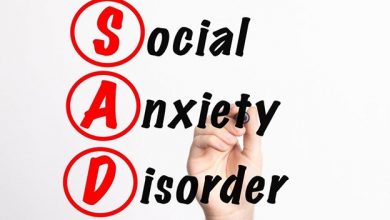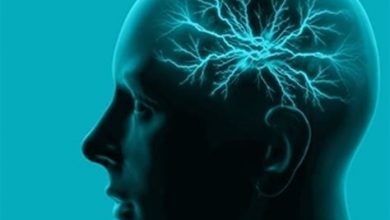Social Cognition
What is social cognition?
Understanding Social Cognition And Why It’s Important
Social cognition may be a subject of psychology that focuses on the collection, storing and implementation of individual and social knowledge.
It reflects on the role of cognitive functions in our relationships with society. The way we want others to feel and communicate with the planet that is surrounding us plays a major role.
What Does Social Awareness Mean?
How do psychologists describe social perception exactly? Although there is no single concept, some similar factors are recognized as significant by many experts.
Social awareness involves the mechanisms inherent in the experience of people and the way we perceive people around us. The research of the mental processes in which people in our social world experience, recall, and develop in their memories. The reasons that we deal with such social world knowledge, how this information is processed in memory, and how it communicates with people.
Social cognition is not just a topic of psychology — it is a tool for the research of social science in any subject. Researchers may study different subjects, including perceptions, personal perception, bias, stereotyping, self-conception, sexism, persuasion, decision-making, and other fields from a social-cognitive perspective.
Examples
Imagine you can simply continue with a blind date. You don’t just concern yourself with the impression and signs that you only send to the other guy, but also with the understanding of your dates.
How does this person have an impact? What does one say by interpreting the actions of the other person? This is also one example of how social cognition affects one social encounter, but you could possibly take more explanations from your lifestyle into consideration.
We spend a large amount of our day communicating with people, so a whole branch of psychology has evolved to better understand how we behave, think and respond in social settings.
Development
In infancy and puberty, social awareness evolves. When children mature into their own feelings, ideas, and motifs, they become more conscious not only of their own emotions and mental illnesses.
Children understand how others feel, how to act in social settings, how to partake in prosocial behavior, and how to take other people.
Although there are several different hypotheses that investigate how social cognition evolves, the work of the psychologist Piaget remains one of the most common. A child’s neurological development goes through a variety of phases in line with Piaget.
Children are very egocentric during the early stages of development. From their own view, they see the world and fail to think as people see it. When kids grow older, kids become more and more apt for insights and are able to believe how and why people function as they do in social settings.
In recent years, a study has shown that children have the potential to trust in people’s viewpoints earlier than commonly assumed by Piaget. And young pre-school children can believe how adults can see a scenario.
The development of a philosophy of the mind is one of the most important inventions of the early emergence of social understanding. A mind theory refers to the capacity of a human to know the mental states of individuals and to believe them.
It is the emergence of a philosophy of the mind that is necessary in order to be able to focus on people’s concepts, motivations, interests, wishes, emotions, and experiences.
It’s important to consider how and why people do the things they do and how these emotional states can affect how people work to shaping their social impressions.
Cultural Differences
Social scientists have also found that cultural variations in social cognition are also important. Two people may have very different interpretations when they look at a social situation… a unique history of interactions, information, social pressures, sensations and cultural shifts is given for all.
Many scientists have also found that mutual cultural factors affect people’s perception of social conditions. Equivalent social activity can have a particular significance and understanding in one cultural sense whether it needs to be defined or witnessed in another.
When people perceive actions, derive interpretations from contact, and behave in line with their assumptions about things, the cultural values that affect their social structures are further reinforced and replicated.
Challenges And Analysis
Social cognition research is underway. However, some existing hypotheses are still questioned.
Future Research Areas
So what are some of the different issues that scholars are interested in learning related to social cognition? Our impressions of others are so important in forging relationships, engaging with others, treating others, and treating others.
Such areas of concern to psychologists when it comes to social knowledge include:
- How will attitudes be developed? In our social lives what part do these attitudes play?
- How do we understand the thoughts and emotions of other people? How do we learn what they think or what they feel? How do we make these conclusions by using certain signs or indicators?
- How does the self-concept come in and how does it affect our interactions with others?
- How do our emotions affect our feelings?
- What mental processes affect people’s thinking or how we generate other people’s impressions?
Conclusion
A review of a variety of social cognition studies indicates it is too individualistic. Due to the social character of the subject itself, others argue that the neural mechanisms underlying social cognition are too constrained for many information processing models commonly used to consider. Specifically, it may provide a much greater view of how people believe and interpret social actions in the collective and immersive facets of human thinking.
Check My Private Library For Psychology
…
Would You Like To Be Able To Help, Heal, And To Change Your Life And The Life Of Many People By Learning New Skills?…
Below Are The Easiest And The Most Effective Ways To Make It Happen!
- Become A Coach And Start Earning By Helping Other People
- Master Your Profession, Your Passion, Or Something New
- Be Part Of The World’s Leading Experts And Find Success
- At-Home Treatment For Children With Anxiety
Other Important Resources
- Improve Your Life Today (Book)
- IG: Personal / Eagle Beagle Spirit
- Visit Our Shop or Become An Ambassador
Always fighting for your rights and your daily improvement,
Juan Plamen





Its fantastic as your other content : D, thankyou for posting. “For peace of mind, we need to resign as general manager of the universe.” by Larry Eisenberg.
Thank you for sharing superb informations. Your web-site is very cool. I’m impressed by the details that you?¦ve on this blog. It reveals how nicely you perceive this subject. Bookmarked this website page, will come back for more articles. You, my friend, ROCK! I found simply the info I already searched all over the place and simply couldn’t come across. What a great website.
I think other site proprietors should take this web site as an model, very clean and magnificent user friendly style and design, let alone the content. You are an expert in this topic!
Thank you, I appreciate :))
I was very pleased to find this web-site.I wanted to thanks for your time for this wonderful read!! I definitely enjoying every little bit of it and I have you bookmarked to check out new stuff you blog post.
Thank you thank you!! :)) Make sure to subscribe too! Helps me a lot and you keep in touch with the fresh news! 🙂
I think this website has got some rattling excellent info for everyone :D. “The public will believe anything, so long as it is not founded on truth.” by Edith Sitwell.
Keep on writing, great job!
Thanks! that’s for sure!
My brother suggested I would possibly like this web site.
He used to be entirely right, this post truly made my day… thank you Juan.
You can’t believe just how a lot of time I had spent on this info!
Thank you!
Hello Tiffani, you’re welcome and I’m happy it helped you out!